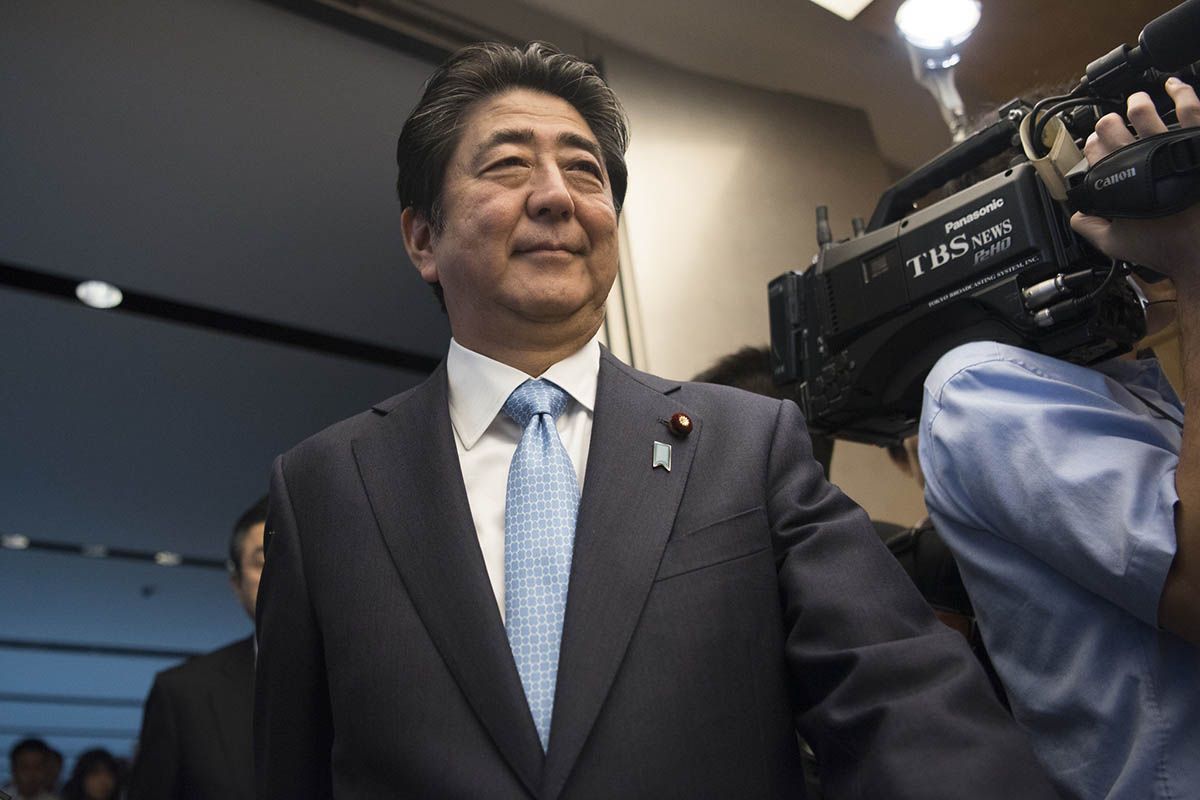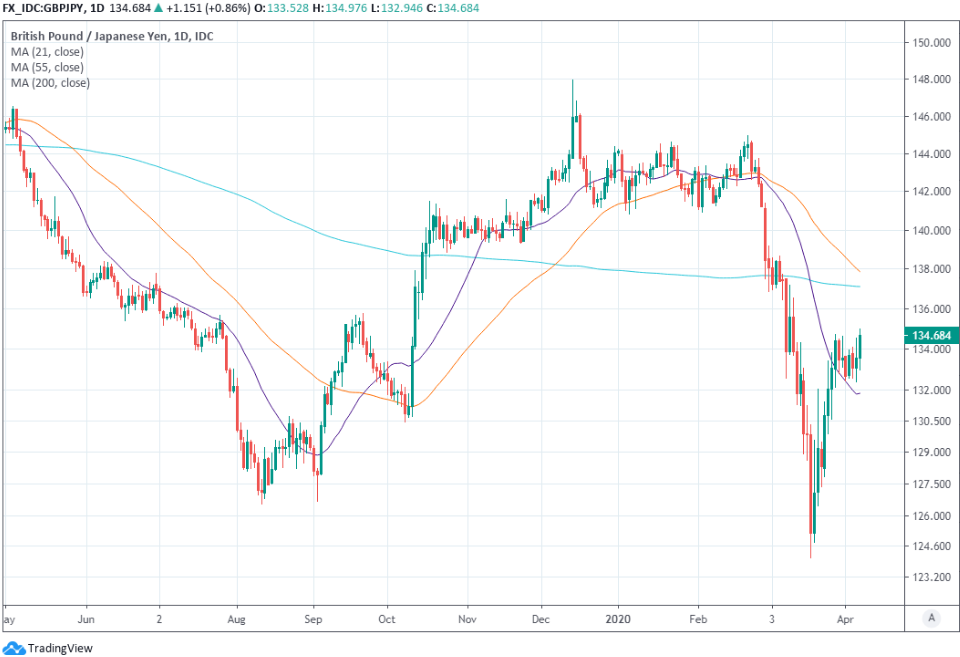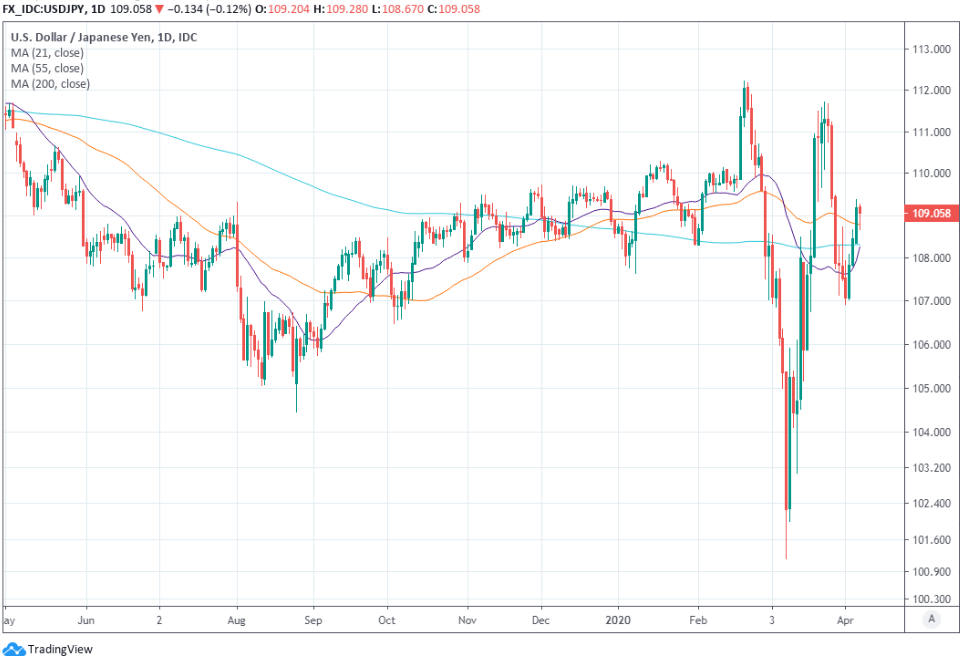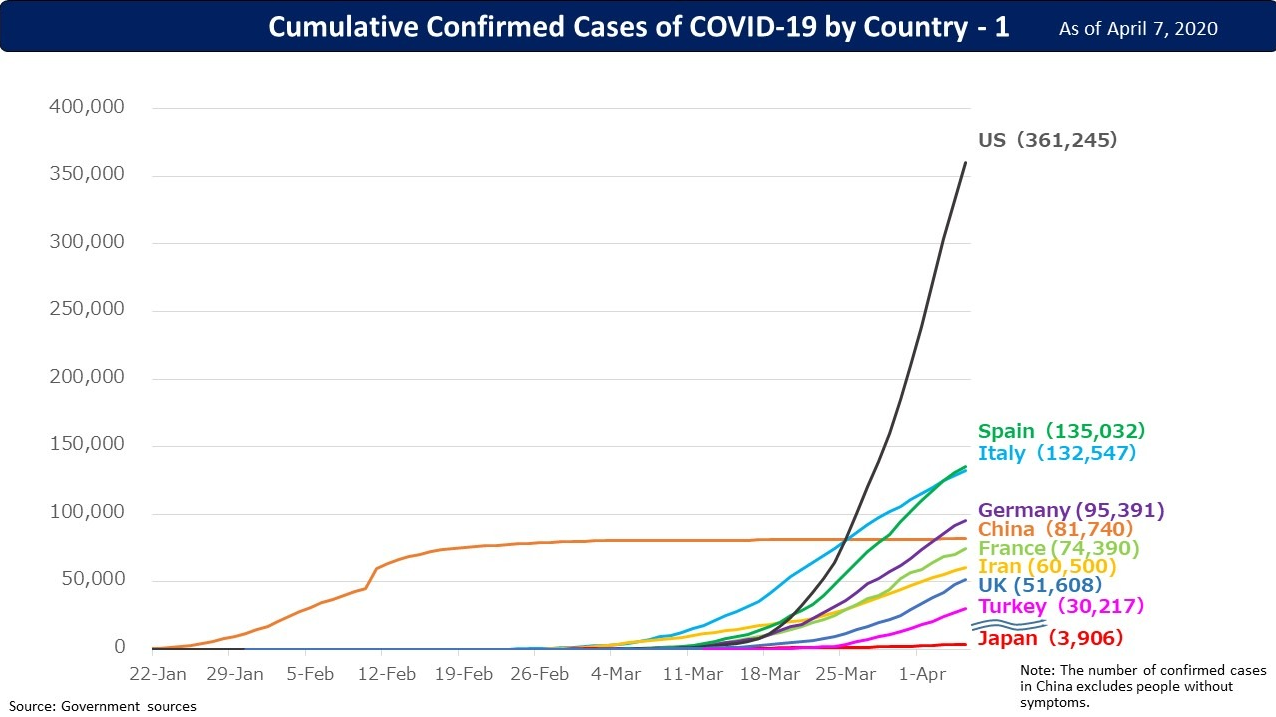Japanese Yen Outlook Darkens as Virus Gains Momentum Locally and Safe-haven Demand Ebbs
- Written by: James Skinner

Image © Chairman of the Joint Chiefs of Staff, accessed Flickr, reproduced under CC licensing.
- GBP/JPY spot at time of writing: 134.16
- Bank transfer rates (indicative): 129.46-130.40
- FX specialist rates (indicative): 132.15-132.95 >> More information
The Japanese Yen was wounded and the outlook for it darkened on Tuesday after the government announced a 'lockdown' that will impact more than half the economy at a time when demand for safe-haven currencies is falling due to a lesser spread of the coronavirus in other major economies.
Japan's Yen fell against all major currencies other than the Dollar on Tuesday after Prime Minister Shinzo Abe declared a state of emergency for the Tokyo, Kanagawa, Saitama, Chiba, Osaka, Hyogo, and Fukuoka prefectures in response to a sudden spike in the number of coronavirus cases found in them.
Confirmed infections rose by 515 to 3,906 on Monday after a week in which the daily average growth rate spiked from 6.6% to 10.6%, with both helping to prompt Tuesday's declaration of a month-long state of emergency in which testing and social distancing measures will be ramped up.
"The lockdown is not expected to be as restrictive for economic activity as in China and Europe but will nonetheless further increase downside risks for growth in Japan in Q2," says Lee Hardman, a currency analyst at MUFG. "The developments have had little impact on the yen which has softened in recent days alongside the tentative improvement in global investor risk sentiment."
Above: Pound-to-Yen rate shown at daily intervals, alongside 21-day, 55-day and 200-day moving-averages.
The Japanese government has asked for the "cooperation" of citizens in implementing social distancing measures aimed at preventing the virus from gaining further momentum in urban areas, although unlike in China and Europe the measures are said to have no legal force. Economic activity will still fall sharply in those seven prefectures over the coming weeks but not necessarily to the same extent seen in Europe given that Japan is asking only for voluntary cooperation, while some European capitals have appropriated draconian powers that are enforced by the long arm of the law.
Japan is providing substantial support to companies and households affected by the state of emergency including ¥300,000 (£2,238) per month for households and ¥2,000,000 (£14,925) for small and medium sized companies. These payments and the other measures announced are equal to some 3.1% of GDP, which takes total coronavirus related spending by the government and private companies to around 20% of GDP according to Japan's largest lender, MUFG.
"The JPY has lost ground against all G10 currencies except the USD on a 1 day view. This is in tune with the ‘risk on’ tone of markets this morning and it suggests that reaction to Abe’s huge fiscal package has been muted," says Jane Foley, a senior FX strategist at Rabobank. "For the Japanese economy, the stimulus package is unlikely to avert a recession, though clearly it will soften the blow. Over the next month or two at least economic data can be expected to wield some disastrous news. Despite the better tone in markets today, it is our view that we have not yet seen the turn in market sentiment."
Above: USD/JPY rate shown at daily intervals, alongside 21-day, 55-day and 200-day moving-averages.
Tuesday's lockdown threatens more toil and trouble for Japan's economy, which was already seen heading for recession even before the coronavirus brought a large part of the global economy to a standstill through March and prompted the cancellation of the Olympics, although a series of back-to-back declines in the number of new infections being reported by the U.S. and some European economies is a paradoxically bigger headache for the Japanese currency.
The typically safe-haven Yen benefitted greatly from the still-pending collapse of the global economy last month but with hope of a virus 'peak' now on the horizon, that demand is well and truly ebbing away. So long as investors remain in the cautiously upbeat mood seen this week the Yen outlook will continue to darken, with or without a lockdown of Japan's seven big prefectures.
The world's third largest economy was among the first to receive a coronavirus infected patient from China back in January but since then actions taken by the government and public had largely curtailed the spread of the pneumonia-inducing disease. Despite being among the first and in spite of playing host to one of the world's most densely populated cities, the capital Tokyo, there were 38 other countries with far larger outbreaks than Japan this Tuesday.
Above: Japanese government graph showing coronavirus epidemic curves for major hotspots.



